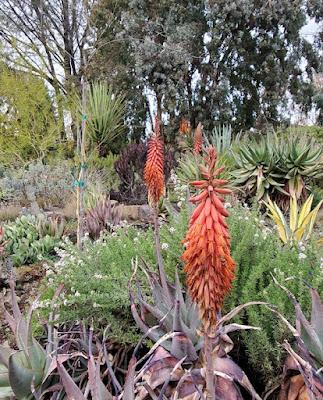
Ruth Bancroft Garden, Walnut Grove, CA
Tucked inside a residential neighborhood, not far from a busy shopping mall, is a wonderful garden specializing in succulents, cacti, and other drought adapted plants. From tiny cacti with mini flowers to a giant Chilean wine palm, there are a host of plants from all over the world.
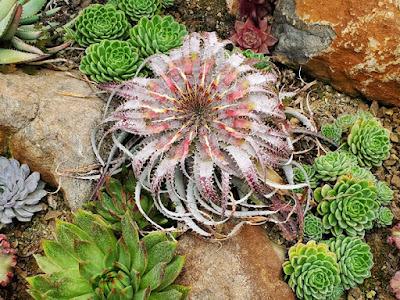
The unique shapes and colors of the plants make them living sculptures.
The Ruth Bancroft Garden and Nursery in Walnut Creek, California, was created as a private garden by Ruth Bancroft in the 1960s to house her large collection of potted plants. The 3.5 acre property, including a pond and structures for shade loving plants, had once been part of the much larger family walnut farm. The garden is now open to the public and a project of the Garden Conservancy, a nonprofit organization dedicated to preserving exceptional American gardens. Mrs. Bancroft passed away in 2017 at the age of 109, leaving her garden as a testament to her vision.
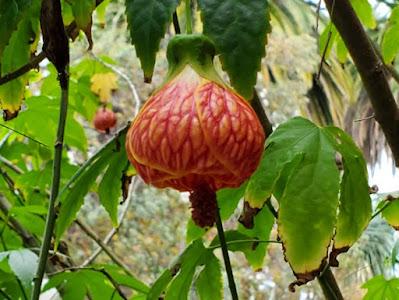
This tree had its own living Christmas decorations, appropriate for the season.
A few weeks ago in Mid-December (actually, on the day of the winter solstice) I visited the garden with my husband and daughter. After paying the fee at the entrance kiosk, we followed the network of flat gravel paths through the plantings, marveling all along the way at the variety of plants, colors, sizes and shapes, and the skillful way the plants complemented one another. We had picked up a guide at the kiosk which included a map and a key to the names of the major types of specimens. We also had the monthly guide to "What's in bloom" to help us identify the flowers of the season.
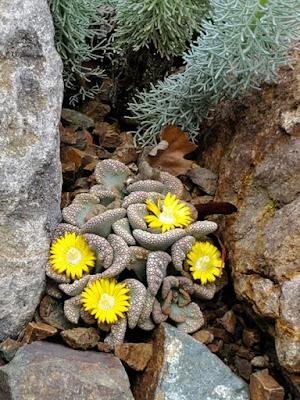
This tiny specimen was tucked between two boulders and several larger plants.
It was a bright but overcast day perfect for photography-- no harsh shadows and soft light to bring out the variety of colors and textures. Here are some of my favorites.
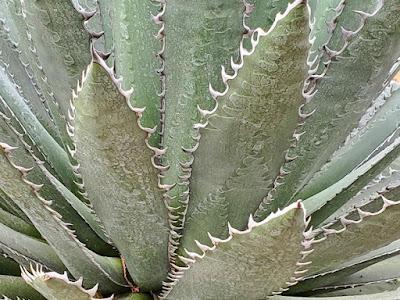
Agave. Like many agaves the leaves have embedded impressions on their surface. This is a result of the leaves unfurling from a central cone, and leaving behind toothy indentations on the adjacent leaves.
Agaves are succulents, like the majority of plants in the garden. Succulents survive drought by storying water in their thickened leaves, stems, trunks, or roots.
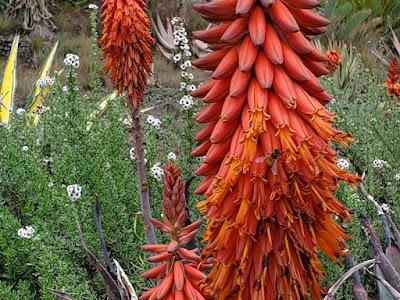
Aloe. Note the bee gathering nectar.
We saw many species of aloe--sprouting large spiky flowers of yellow and orange. Examples of Aloes native to Mexico, South Africa, Kenya and elsewhere around the world are found in the garden.
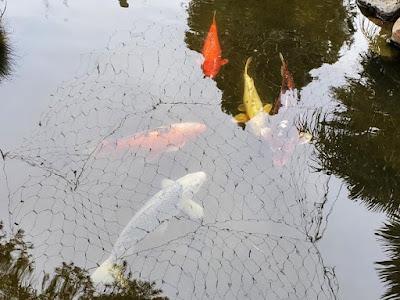
Koi pond.
At the center of the garden is a small koi pond and a bench for resting in the shade.
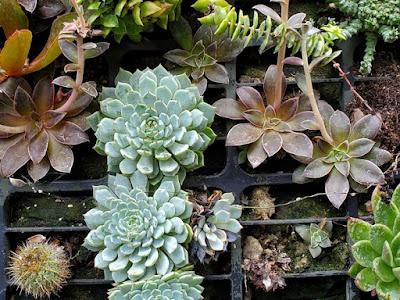
A mix of succulents and cacti form a living wall.
Along a wall at the end of the garden a mosaic of succulents filled cells in a vertical planter box, creating a living wall.
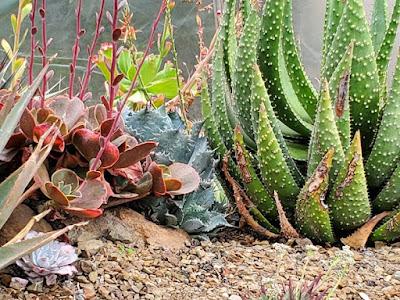
Planting inside shade house.
Inside the shade structure a close-up view makes it seem that the plants are at the bottom of an aquarium. There were no fish, but we did catch sight of a hummingbird sipping nectar from one of the flowers.
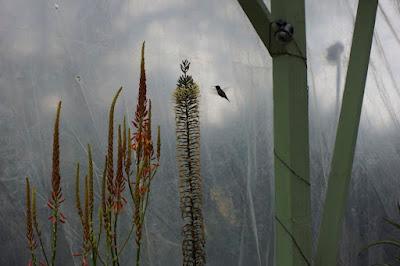
Hummingbird inside shade structure.
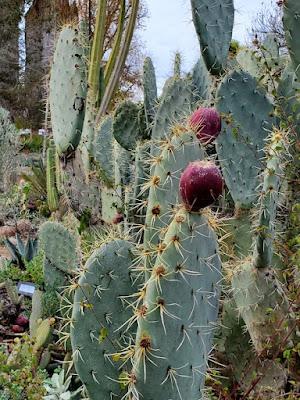
Cactus spikes are an adaptation that help deflect sunlight and reduce surface temperature in hot summer months.
At the end of our visit to the garden, we exited through the nursery, filled with potted plants ready to purchase and take home for your own succulent garden. We bought a tiny cactus which will take its place on my patio at home.
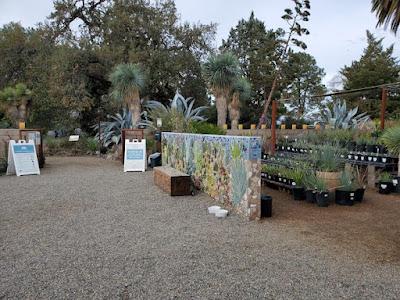
Mosaic wall at garden entrance; nursery on the right.
Ruth Bancroft Garden and Nursery
1552 Bancroft Road
Walnut Creek, CA 94598
Phone: 925-944-9352
The garden is open most days of the year except for major holidays. On the day of our visit almost no one else was there.
For more information check the garden website: www.ruthbancroftgarden.org
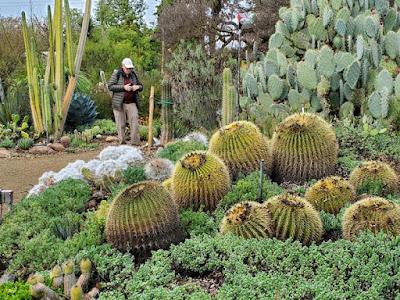
Winter rains turn these barrel cactus into plump spiky balls.
